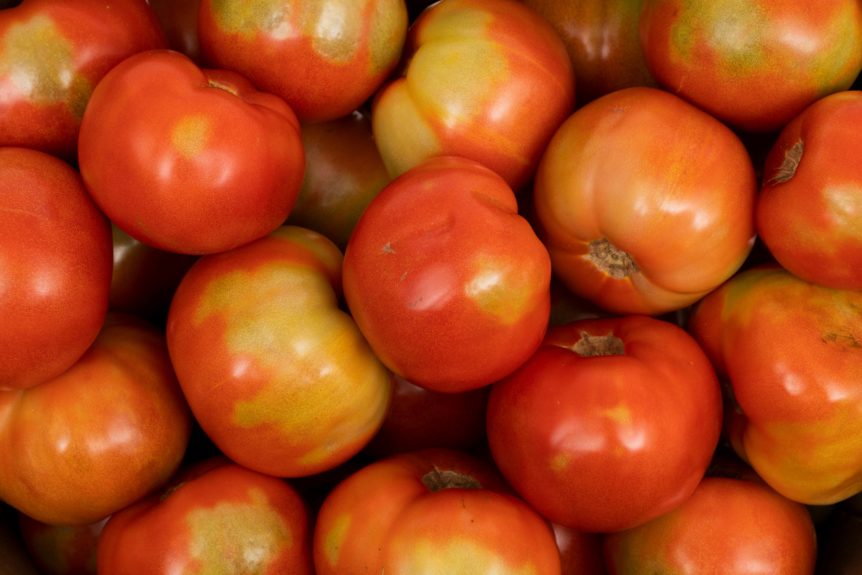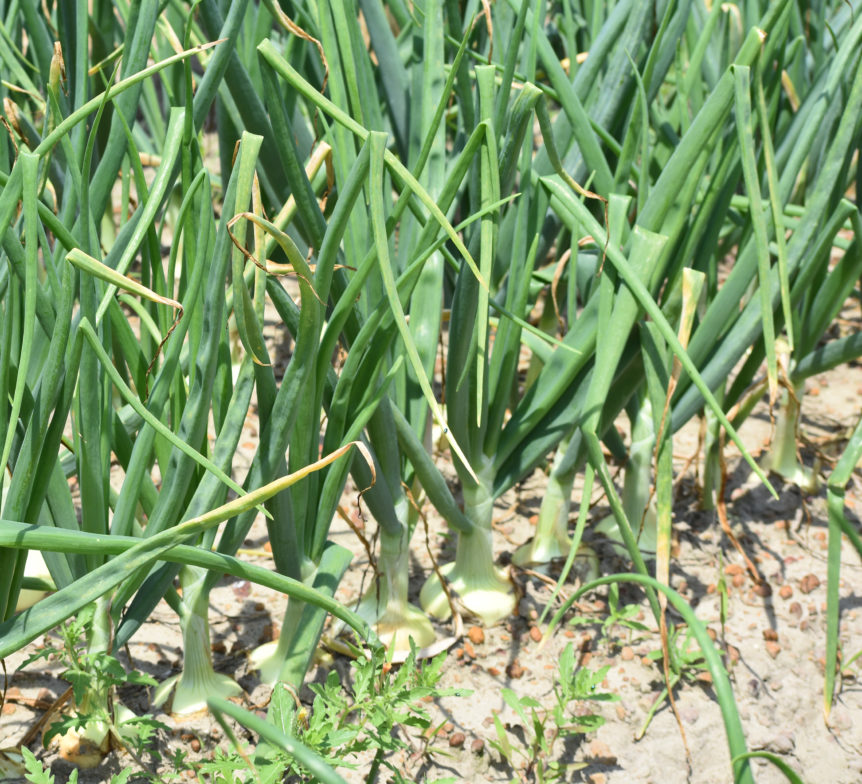A combination of herbicide and fertilizer can prevent nutsedge from impacting tomatoes, according to University of Florida Institute of Food and Agricultural Sciences (UF/IFAS). That should mean more of the vegetable going to the grocery store and your kitchen. An increase or decrease in tomato production is critical because it’s a $400 million-a-year industry in Florida. Growers want to control …
Dacthal Done: Onion Growers Lose Effective Herbicide
By Clint Thompson Onion producers should be aware that the Environmental Protection Agency (EPA) has issued an emergency order suspending all uses of Dacthal. The order became effective on Aug. 7 and the herbicide can not be sold or used in any manner, according to Stanley Culpepper, University of Georgia Extension weed scientist. “Even it’s sitting in your barn, you …
2,4-D Herbicide Drift Damage Showing up in Pecan Orchards
By Clint Thompson Herbicide damage is showing up in Southeast pecan orchards. This is the result of row-crop burndown, according to Lenny Wells, University of Georgia (UGA) Extension pecan specialist. It also has some growers concerned about the potential impact of 2,4-D mix drift on this year’s crop. “This is never a pleasant situation. It tends to be infuriating, nerve-wracking, …
UF/IFAS Utilizes AI for Herbicide Application
By Clint Thompson One University of Florida Institute of Food and Agricultural Sciences (UF/IFAS) researcher is using artificial intelligence (AI) to apply herbicides more efficiently. Nathan Boyd’s research will help growers to not make chemical applications where they are not needed. “We use artificial intelligence that we’ve trained to differentiate. You could train it to differentiate species. We’ve decided that’s not really …
UF/IFAS Using AI to Apply Herbicides More Efficiently
By Clint Thompson One University of Florida Institute of Food and Agricultural Sciences (UF/IFAS) researcher is using artificial intelligence (AI) to apply herbicides more efficiently. Nathan Boyd’s research will help growers to not make chemical applications where they are not needed. “We use artificial intelligence that we’ve trained to differentiate. You could train it to differentiate species. We’ve decided that’s …
Do Pecan Producers Really Need Herbicide Strips?
By Clint Thompson Maintaining herbicide strips in pecan orchards is an essential management tactic for growers with young trees, says Lenny Wells, University of Georgia Cooperative Extension pecan specialist. It is not as dire, though, for producers with more mature trees. “In a mature orchard, the competition is not going to be as hard on the tree, but also if …
UF/IFAS Scientist: Timing of Pre-Emergent Herbicide Applications is Key
By Clint Thompson Timing is everything for specialty crop growers implementing a pre-emergent herbicide program in their vegetable crops. Ramdas Kanissery, weed scientist and assistant professor at the University of Florida Institute of Food and Agricultural Sciences (UF/IFAS), elaborates on the importance of ensuring the herbicide applications are made on time. “We have some herbicides available that can be used …
Applying Herbicide Under Plastic Mulch
By Ramdas Kanissery Weed management is fundamental in successfully growing vegetables in Florida using a plasticulture system. Traditionally, this production system was reliant on fumigants like methyl bromide to control various soilborne diseases, nematodes and weeds. However, the phaseout of methyl bromide resulted in a lack of broad-spectrum activity and consistency in weed suppression in plastic mulched raised beds. This …
Alternative to Lack of Oryzalin Herbicide for Fruit Producers
By Clint Thompson Specialty crop producers need to be wary this spring of supply issues with regards to Oryzalin, a popular herbicide. None is being manufactured, according to Wayne Mitchem, N.C. State Extension associate and Southern Region Small Fruit Consortium coordinator. He discusses the impact that a lack of the product will mean for some fruit farmers. “The thing about …
Improving Pre-emergent Herbicide Use in Vegetable Row Middles
By Ramdas Kanissery, Ruby Tiwari and Nirmal Timilsina Weeds are problematic in vegetable production as they compete with crops for nutrients, water and other resources. Weeds that emerge in the spaces between the raised beds (row middles) not only serve as hosts for pests and diseases but can potentially interfere with farm operations (Figure 1). Weeds can negatively affect field …












